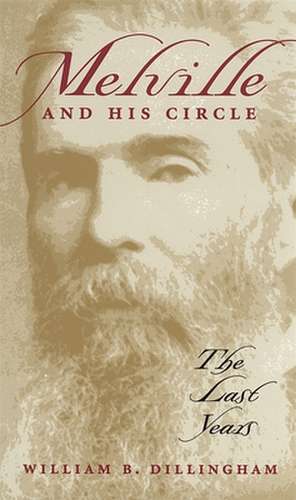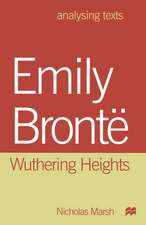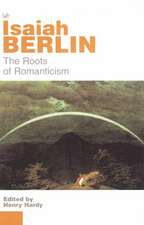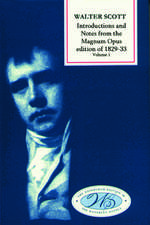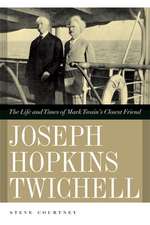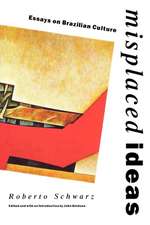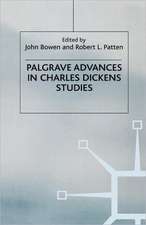Melville and His Circle: The Last Years
Autor William B. Dillinghamen Limba Engleză Paperback – 31 aug 2008
Preț: 246.75 lei
Nou
Puncte Express: 370
Preț estimativ în valută:
47.22€ • 49.42$ • 39.30£
47.22€ • 49.42$ • 39.30£
Carte tipărită la comandă
Livrare economică 31 martie-14 aprilie
Preluare comenzi: 021 569.72.76
Specificații
ISBN-13: 9780820332727
ISBN-10: 0820332720
Pagini: 232
Dimensiuni: 152 x 229 x 13 mm
Greutate: 0.35 kg
Editura: University of Georgia Press
ISBN-10: 0820332720
Pagini: 232
Dimensiuni: 152 x 229 x 13 mm
Greutate: 0.35 kg
Editura: University of Georgia Press
Textul de pe ultima copertă
Herman Melville is a towering figure in American literature - arguably the country's greatest nineteenth-century writer. Revising a number of entrenched misunderstandings about Melville in his later years, this is a remarkable and unprecedented account of the aged author giving himself over to a life of the mind. Focusing exclusively on a period usually associated with the waning of Melville's literary powers, William B. Dillingham shows that he was actually concentrating and intensifying his thoughts on art and creativity to a greater degree than ever before. What sustained Melville during that final period of ill health and near-poverty, says Dillingham, was his "circle", not of close friends but of works by a number of writers that he read with appreciative, yet discriminating, affinity, including Matthew Arnold, James Thomson, Arthur Schopenhauer, and Honore de Balzac. Dillingham relates these readings to Melville's own poetry and prose and to a rich variety of largely under-appreciated topics relevant to Melville's later life, from Buddhism, the School of Pessimism, and New York intellectual life to Melville's job at the ever-corrupt customs house, his fear of disgrace and increased self-absorption, and his engagement with both the picturesque and the methaphorical power of roses in art and literature. This portrait of the great writer's final years is at once a biography, an intellectual history, and a discerning reading of his mature work. By showing that Melville's isolation was a conscious intellectual decision rather than a psychological quirk, Melville and His Circle reveals much that is new and challenging about Melville himself and about our notions of age and thepersistence of imagination and creativity.
Notă biografică
WILLIAM B. DILLINGHAM is Charles Howard Candler Professor of American Literature at Emory University. His books include An Artist in the Rigging: The Early Work of Herman Melville and Melville's Short Fiction, 1853-1856 (both Georgia).
